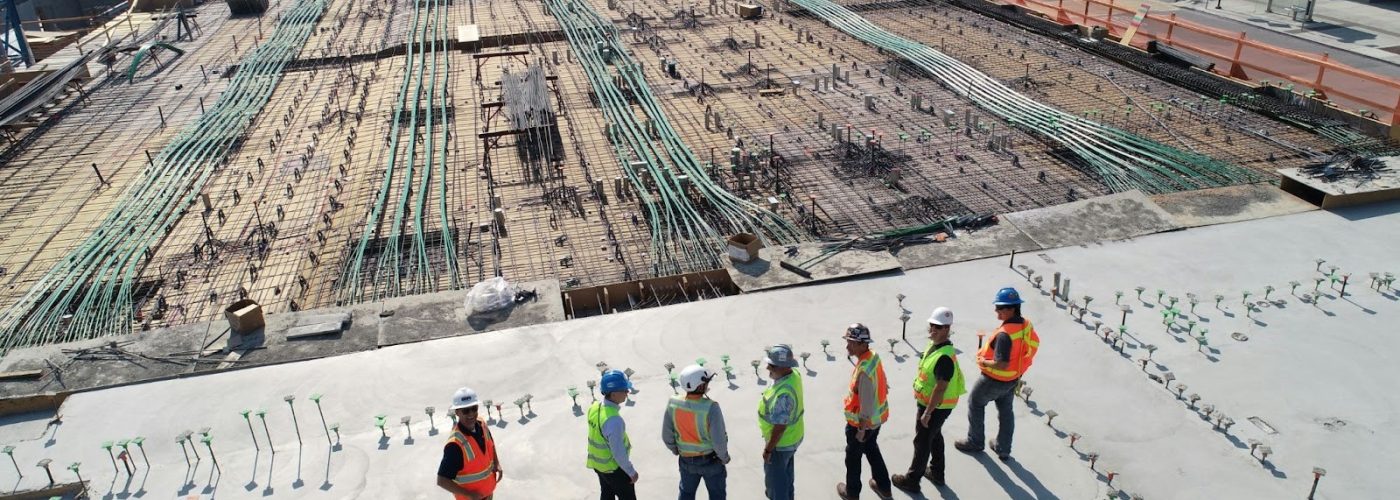It only takes one successful project to show us something is possible. Marvels of modern engineering started as concepts, transitioned to paper and refined in programs. Until the last brick is set, the aura of uncertainty exists. Manchester’s new stadium project is no different. It’s an ambitious project that will move the line and set the bar forward. Or it will bankrupt one of the UK’s more prominent clubs. Whatever it achieves, it will go down in history. But what will it be remembered for?
1. A £2 Billion Vision
In numbers alone, the future Manchester United (MU) stadium will be a precedent. A 100.000-seat megastructure with umbrella weather protection for each spectator is just the tip of the construction berg. The stadium will blend natural and artificial construction, and the flow of traffic and humans is at the forefront. Walkability and public transport are all taken into consideration, and the project will also contribute to transportation while being built.
A project like this attracts attention, and raises questions as well as popularity. Manchester’s reputation is now under headlights and pressure. The club must continue to perform and justify this massive investment, but it would not have gotten to where it is without its faithful fans. Cheering and betting on MU games without self exclusion limits means fans will get bigger promotions and better odds while also contributing to their club, and iGaming writer James Briscoe has shared some places where they can do just that.
2. Crafting the Future of Old Trafford
The future of construction could move to prefabricated or modular construction practices, where companies that succeed now will become industry leaders later. As much as the stadium can boost MU’s revenue, it serves as an advertisement for companies wishing to position themselves as the best.
The magic word is “modular construction“, which will make the magic happen. The UK is the fastest-growing market in Europe with prefabricated or modular construction, and experts predict over 8% growth every year. All of this means that there’s plenty riding on the success of such a large-scale project, but the payoff could be monumental.
3. 92,000 New Jobs on the Horizon
Modular construction uses less resources, time and manpower, and it’s still driving growth. A stadium of this magnitude will drive local tourism, infrastructure, traffic, logistics and nearby businesses, leading to not only the stadium growing but the entire city. Try to imagine 100.000 people cheering at one stadium. Just to get them all to one spot is a logistical wonder, that will involve countries’ taxis, buses and cars.
That alone will open up new jobs, regardless of those employed by the construction companies involved. As the project develops, new opportunities will rise, and the modular industry will spread its wings. England is thinking big, where ABB is moving into its new 100,000 square feet home, showing that big brands are growing to colossal levels.
4. Sustainable Design
Modular building has purposes beyond expanding stadium capacities. The success of the project could green-light the modular practices for other areas. Over 8.5 million people in the UK face housing needs and modular buildings can provide what they need, where even the Crown Estate is getting involved. A prefabricated home is easier to build than a stadium, all that’s needed is to adjust the scale of mass production. Once the MU stadium is done it can be a domino effect before entire modular housing neighbourhoods are built.
5. Conclusion
For future stadiums, modularity could set standards. A world series is happening in a country that does not have the capacity at the moment. Modular buildings can help. Need housing for thousands of people? A new highway? Any large structure? Modular could be the answer to our growing world needs.





